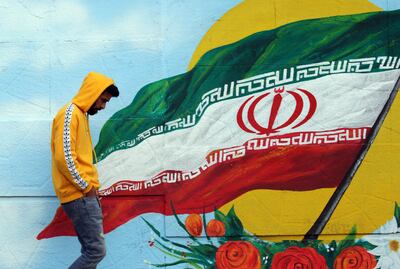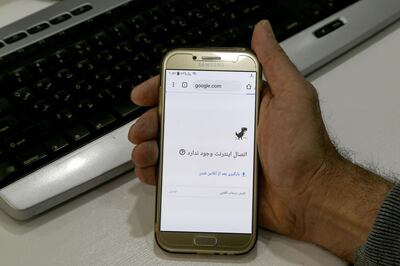Iran’s supreme leader Ayatollah Ali Khamenei on Sunday cautiously backed his government's decision to raise petrol prices by 50 per cent, criticising those who vandalised public buildings during protests and signalling a crackdown.
Thousands of protesters took to the streets of Tehran and about two dozen other Iranian cities at the weekend in response to a government decision to raise petrol prices.
Earlier on Sunday, the country's Interior Minister warned citizens protesting over petrol price increases that security forces would become involved if they continued.
Iranian authorities on Sunday raised the official death toll in the violence to at least three.
Attackers targeting a police station in the western city of Kermanshah on Saturday killed an officer, the state-run Irna news agency reported on Sunday.
A politician said another person was killed in a suburb of Tehran. Earlier, one man was reported killed Friday in Sirjan, a city about 800 kilometres south-east of the capital.
Videos shared online showed police using tear gas to disperse gathering crowds.
About 1,000 people have been detained over two days, Fars reported, quoting security officials.
In an address aired Sunday by state television, Mr Khamenei said “some lost their lives and some places were destroyed”, without elaborating.
He called the protesters “thugs” who had been pushed into violence by counter-revolutionaries and foreign enemies of Iran.
Mr Khamenei said that Iranian citizens should keep clear of the violent demonstrators and ordered the security forces "to implement their tasks", indicating a crackdown could be looming.
Interior Minister Abdolreza Fazli earlier on Sunday said that security forces had so far "showed restraint".
"But as the calm and security of people is our priority, they will fulfil their duty to restore calm if attacks on public and individuals’ properties continue,” Mr Fazli said.

Protests in late 2017 and early 2018 were met by a heavy reaction by the police and the Basij, a volunteer force that is part of Iran’s paramilitary Revolutionary Guard.
“Such illegal actions would not solve any problem but add insecurity on top of other problems,” Mr Khamenei said.
“Lack of security is the biggest calamity for any country and society. That is what they are looking for.”
Cheap petrol is practically considered a right in Iran, home to the world’s fourth-largest crude oil reserves.
President Hassan Rouhani pushed for higher prices for months to offer payments to the poor.
While the price increase was eventually expected, the decision still caught many by surprise and sparked immediate demonstrations overnight.
The government also imposed a strict rationing system of 60 litres for each private car.
Mr Rouhani defended the moves in comments to his Cabinet on Sunday, saying the alternatives were less favourable.
"The government's purpose in the livelihood-support programme is to help low and medium-income families who are under pressure with economic sanctions," he said on his official website.
"For this we should either increase taxes on the people, export more oil or reduce subsidies and return the revenues to the people in need."
There were disruptions to internet access on Friday night and into Saturday, said monitor NetBlocks.
By Saturday night, “real-time network data show connectivity has fallen to just 7 per cent of ordinary levels after 12 hours of progressive network disconnections as public protests have continued across the country”, NetBlocks said.
“The ongoing disruption is the most severe recorded in Iran since President Rouhani came to power, and the most severe disconnection tracked by NetBlocks in any country, in terms of its technical complexity and breadth."
Forty people were arrested in the central Iranian city of Yazd after clashing with police during the protests, the semi-official Isna news agency reported on Sunday.
The province's public prosecutor, Mohammad Hadadzadeh, said those detained were "disruptors" who carried out acts of vandalism, and most of them were not Iranians.
Mr Khamenei called the demonstrators “thugs” and blamed outsiders for the disruption.
They included those aligned with the family of Iran’s late shah, who was ousted 40 years ago, and a group in exile called the Mujahedeen-e-Khalq.
"Setting a bank on fire is not an act done by the people. This is what thugs do,” Mr Khamenei said.
He backed Mr Rouhani's decision to raise petrol prices.
The country's petrol is among the cheapest in the world.
The new prices jumped to a minimum of 15,000 rials (Dh1.30) a litre of petrol – 50 per cent up from the day before.












